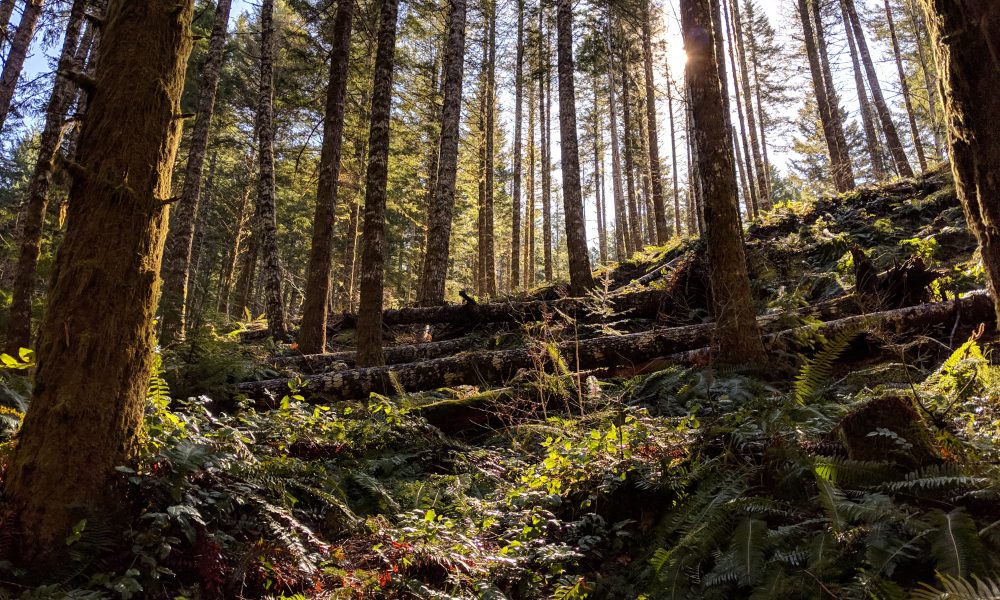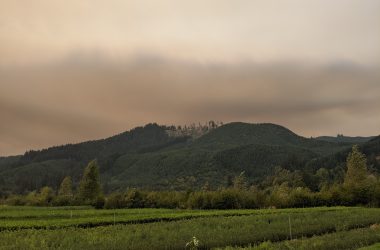Linn and 12 other counties have asked the Oregon Supreme Court to review a ruling reversing a $1.1 billion verdict in a case over the state’s management of forestland and revenue from timber harvests.
The appeal to the state’s highest court, filed last Wednesday, comes in the wake of an April decision from the Oregon Court of Appeals which said the state did not have to pay the counties over timber sales. Linn County, claiming it was shortchanged by the state, originally sued in 2016. The Supreme Court must decide whether to hear the appeal in the case.
Roger Nyquist, the chair of the Linn County Board of Commissioners, said Thursday he hopes the court takes the case.
“We just think it’s an issue of such statewide concern that the highest court in the state should weigh in,” he said. “Court action aside, between the gap in finances and the gap in attitude between the rural and urban parts of the state, it all calls for a solution.”
At issue in the case is timber revenue from more than 500,000 acres of forestland in western Oregon counties. In the 1930s and 1940s, the counties donated the lands to the state. The plaintiffs in the lawsuit, including about 150 governmental entities in the counties, contend that the state agreed to manage those forestlands for the “greatest permanent value,” which the counties interpreted as maximizing timber harvests and funneling the associated revenue to the mostly rural counties. The counties argue in the lawsuit that the agreement constituted a contract between the state and the counties.
The lawsuit, filed in Linn County Circuit Court, argued that changes beginning in 1998 in how the state managed those lands broadened the definition of “greatest permanent value” to include environmental goals. That resulted in a decline in the timber harvest and a drop in revenue to the counties.
“That promised revenue is a critical source of funding for services to rural Oregonians in particular,” John DiLorenzo Jr., the lead attorney for the plaintiffs, wrote in court documents filed with the Supreme Court.
In its April ruling, the Court of Appeals determined that the case hinged on whether the law directing the state to “secure the greatest permanent value of those lands to the state” was part of a contractual agreement between the state and the counties. The court concluded that it was not.
Judge Douglas Tookey, writing for the Court of Appeals, found that the text and context regarding the phrase “greatest permanent value” does not “clearly and unmistakably create a contractual obligation.”
Tookey noted that “the ‘greatest permanent value’ management standard is, at the very least, ambiguous as to whether it requires maximization of revenue.” He wrote that the Linn County trial judge erred in not granting the state’s motion to dismiss the case.
DiLorenzo’s pleading to the Supreme Court argues that the Court of Appeals decision misapplies the high court’s framework for determining whether a particular provision is part of a statutory contract. He also argues that the Court of Appeals misinterpreted a key earlier ruling involving a parcel of forest trust lands in Linn County.
Big issues are at stake in the case, DiLorenzo wrote: “Whether the trial court judgment is affirmed or reversed significantly affects those communities whose economies and quality of life have been decimated by the loss of employment in the natural resources sector. These rural communities depend on the stream of timber revenues and the services they provide, and this appeal is their last opportunity to realize the value of the lands they conveyed in reliance on the state’s promises.”
DiLorenzo was not available for comment on Thursday. Kristina Edmunson, spokeswoman for the attorney general’s office, did not return an email seeking comment on the appeal.
But when the Court of Appeals issued its ruling in April, Attorney General Ellen Rosenblum and Gov. Kate Brown both praised it. Brown said the decision validated the state’s “balanced, science-based approach to public forest management. In Oregon, we manage our forests not only for the benefit and prosperity of this generation but those to come.”
Other counties listed as plaintiffs in the lawsuit are Benton, Clackamas, Columbia, Coos, Douglas, Josephine, Lane, Lincoln, Marion, Polk, Tillamook and Washington.














